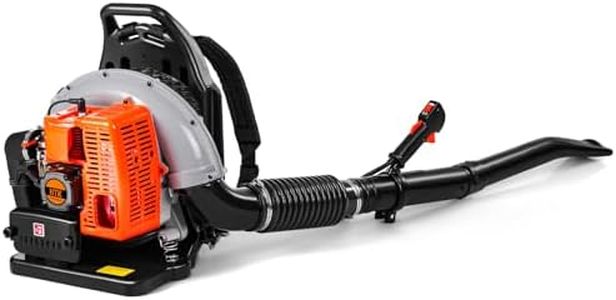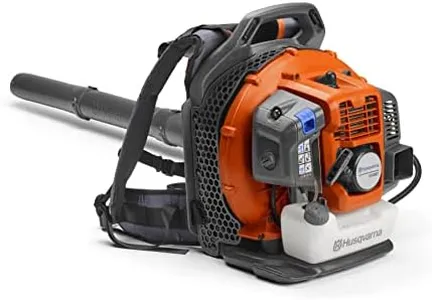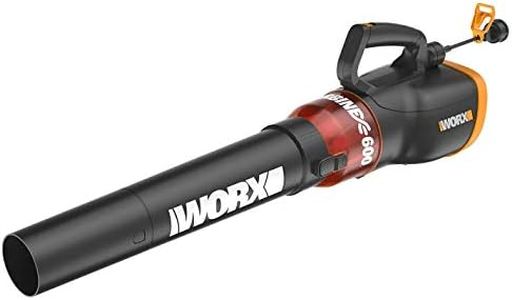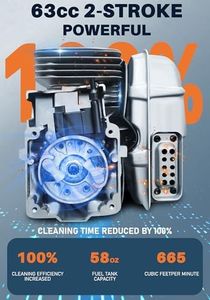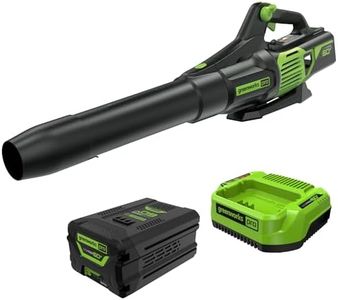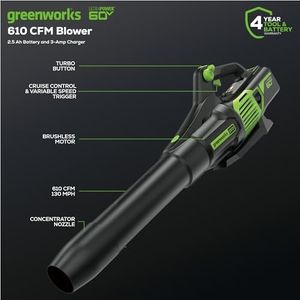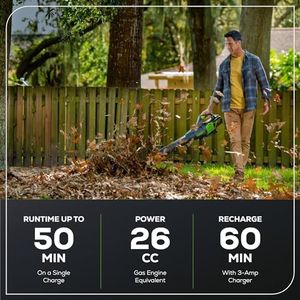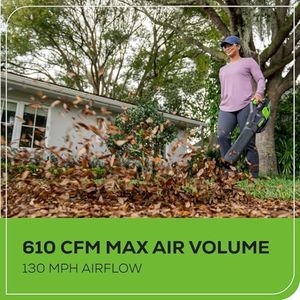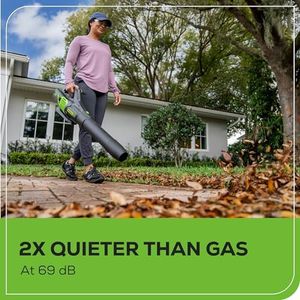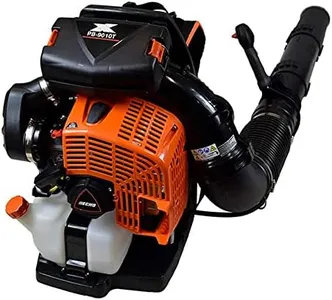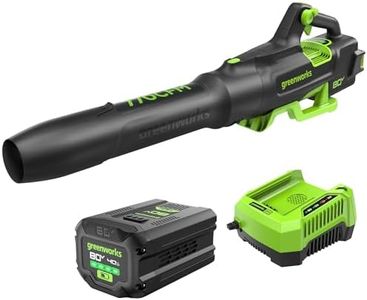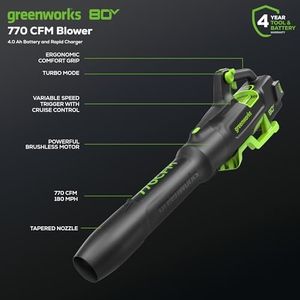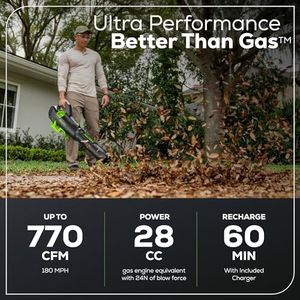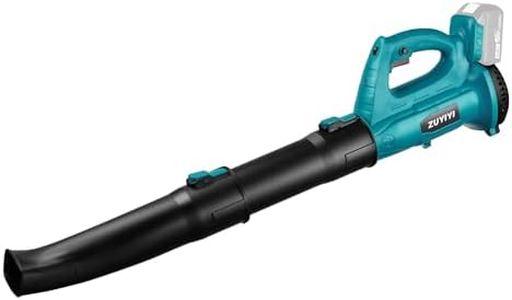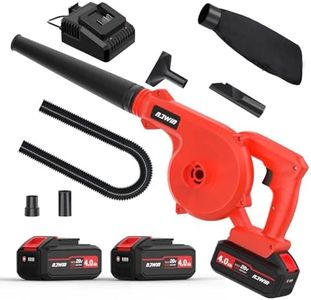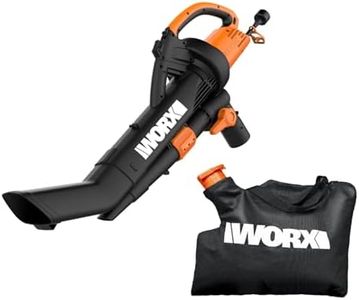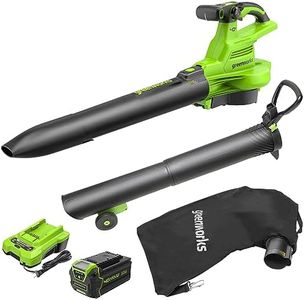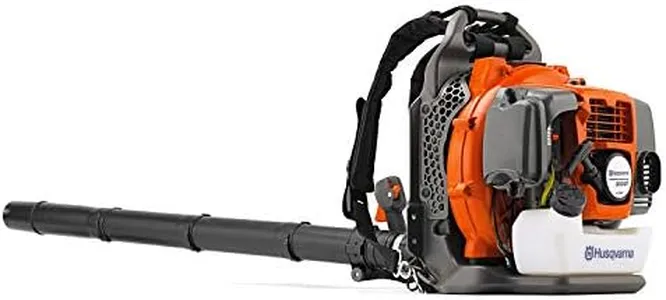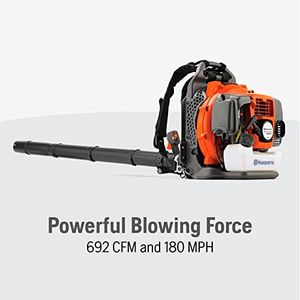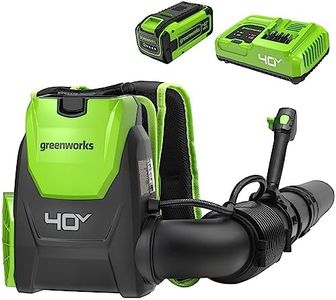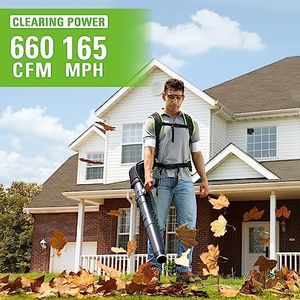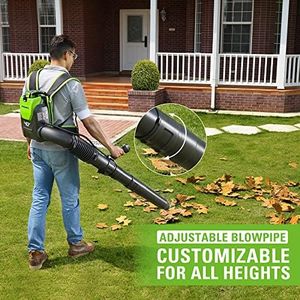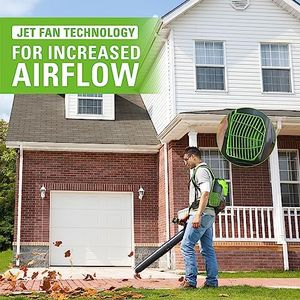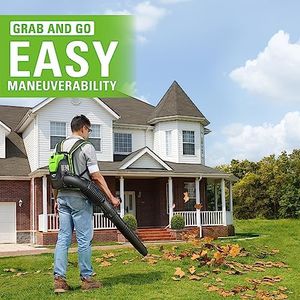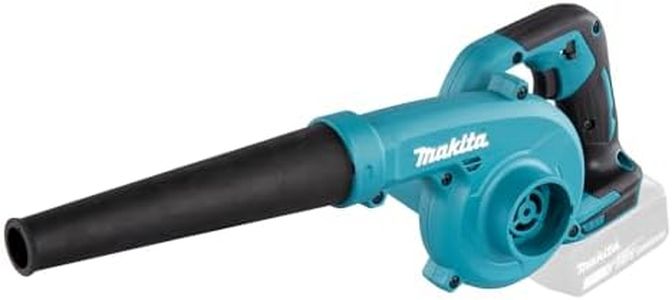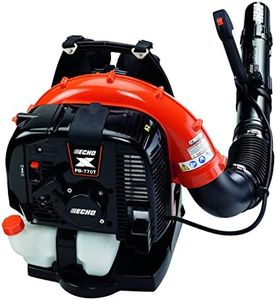10 Best Lightweight Backpack Blower 2025 in the United States
Winner
HTK 63 CC Gas Backpack Leaf Blower - 2-Stroke Engine, High-Velocity 665 CFM, Ergonomic Design, Low Vibration, and Cruise Control for Effortless Yard Mastery All Year Round
The HTK 63 CC Gas Backpack Leaf Blower is a powerful tool designed to make yard work efficient and less strenuous. It boasts an impressive 665 CFM air volume and 205 MPH air speed, making it suitable for handling various seasonal debris, from autumn leaves to winter snow. The two-stroke engine provides strong performance, though it may require some maintenance and proper fuel mix ratios.
Most important from
333 reviews
Husqvarna 150BT Gas Leaf Blower, 51-cc 2.16-HP 2-Cycle Backpack Leaf Blower, 765-CFM, 270-MPH, 22-N Powerful Clearing Performance and Ergonomic Harness System
The Husqvarna 150BT Gas Leaf Blower stands out as a powerful and efficient tool for yard maintenance. Weighing 22 pounds, it is not the lightest option available but is manageable for most users who need a strong blower. Its 51-cc, 2.16-HP engine delivers impressive performance with an air volume of 765 CFM and an air speed of up to 270 MPH. This means it can handle tough jobs like clearing heavy, wet leaves with ease. Moreover, the blower is designed to be fuel-efficient, reducing emissions by up to 60% and increasing fuel efficiency by up to 20%, which is great for both the environment and your wallet.
Most important from
1050 reviews
Top 10 Best Lightweight Backpack Blower 2025 in the United States
Winner
10.0 score
HTK 63 CC Gas Backpack Leaf Blower - 2-Stroke Engine, High-Velocity 665 CFM, Ergonomic Design, Low Vibration, and Cruise Control for Effortless Yard Mastery All Year Round
HTK 63 CC Gas Backpack Leaf Blower - 2-Stroke Engine, High-Velocity 665 CFM, Ergonomic Design, Low Vibration, and Cruise Control for Effortless Yard Mastery All Year Round
Chosen by 1183 this week
Husqvarna 150BT Gas Leaf Blower, 51-cc 2.16-HP 2-Cycle Backpack Leaf Blower, 765-CFM, 270-MPH, 22-N Powerful Clearing Performance and Ergonomic Harness System
Husqvarna 150BT Gas Leaf Blower, 51-cc 2.16-HP 2-Cycle Backpack Leaf Blower, 765-CFM, 270-MPH, 22-N Powerful Clearing Performance and Ergonomic Harness System
Echo X Series Back Pack Blower With Tube Throttle 79.9Cc
Echo X Series Back Pack Blower With Tube Throttle 79.9Cc
Greenworks 80V 770 CFM Cordless Leaf Blower, 4.0Ah Battery and Rapid Charger
Greenworks 80V 770 CFM Cordless Leaf Blower, 4.0Ah Battery and Rapid Charger
Husqvarna 350BT Gas Leaf Blower, 50.2-cc 2.1-HP 2-Cycle Backpack Leaf Blower with 692-CFM, 180-MPH, 21-N Powerful Clearing Performance and Ergonomic Harness System
Husqvarna 350BT Gas Leaf Blower, 50.2-cc 2.1-HP 2-Cycle Backpack Leaf Blower with 692-CFM, 180-MPH, 21-N Powerful Clearing Performance and Ergonomic Harness System
Greenworks 40V (165 MPH / 660 CFM / 75+ Compatible Tools) Cordless Brushless Backpack Leaf Blower, 8.0Ah Battery and Charger Included, Green
Greenworks 40V (165 MPH / 660 CFM / 75+ Compatible Tools) Cordless Brushless Backpack Leaf Blower, 8.0Ah Battery and Charger Included, Green
8.6 score
PB-770T - Echo Backpack Blower - Commercial Grade 63.3 cc, Gas, 756 CFM, 234 MPH, 5-yr Consumer Warranty!
PB-770T - Echo Backpack Blower - Commercial Grade 63.3 cc, Gas, 756 CFM, 234 MPH, 5-yr Consumer Warranty!
Our technology thoroughly searches through the online shopping world, reviewing hundreds of sites. We then process and analyze this information, updating in real-time to bring you the latest top-rated products. This way, you always get the best and most current options available.

